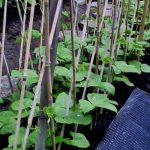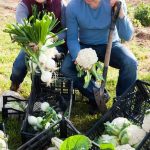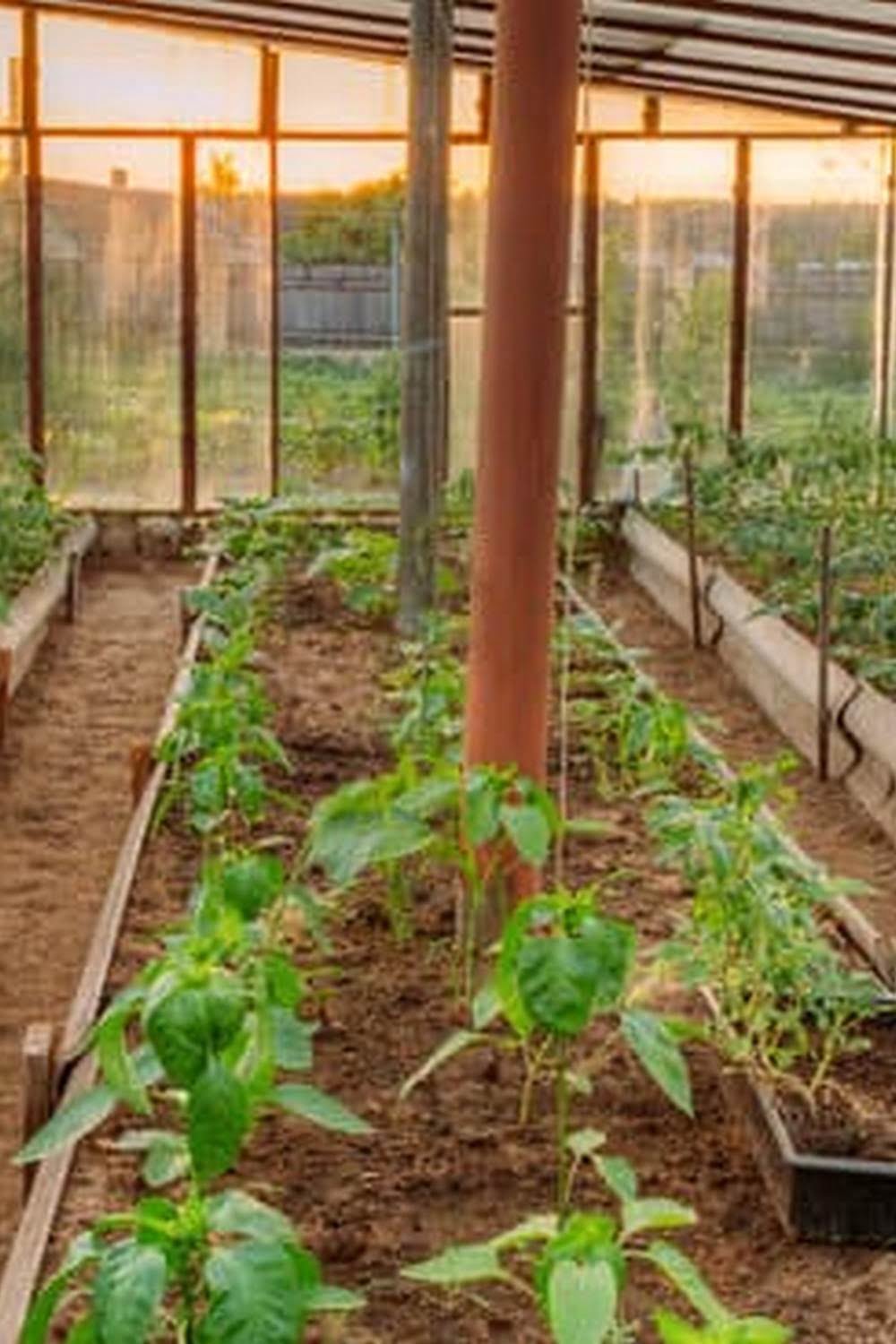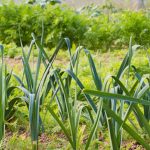Introduction
Urban gardening is an increasingly popular activity, thanks to its numerous benefits. This type of gardening offers convenience for urban dwellers, as it can be done even in small spaces like balconies and rooftops. Urban gardeners delight in being able to produce tasty, nutritious vegetables from their own gardens, rather than relying on store-bought options that may contain preservatives. Aside from the pleasure of enjoying homegrown fruit and vegetables straight from the plant itself, growing a garden in urban areas provides numerous other benefits which include financial savings, improved physical health, increased safety and variety in diets.
Financial Savings: Growing your own produce not only makes your kitchen greener but also your wallet! Fresh store-bought fruits and vegetables can be quite expensive by comparison with home grown food, especially if you start growing them yourself organically. In addition to savings on produce costs, you’ll save money on fertilizer too since most backyard crops don’t require excessive amounts of soil nutrients or water.
Improved Physical Health: Gardening encourages physical activity which helps keep you fit throughout the year – plus it allows you to get some much needed sun exposure for Vitamin D. Furthermore, growing organic produces means no harmful pesticides or herbicides will end up on your food making them healthier to eat as well as better for the environment.
Increased Safety: Having access to (and control over) your own fruits and vegetables eliminates potential risks inherent in purchasing grocery store items that could have been treated with unsavory pesticides or herbicides. Moreover with homegrown produce there is less risk of contamination due to air pollution or poor storage practices.
Variety in Diets: Growing a variety of plants at home introduces flavors and textures beyond what’s normally available at stores which encourages healthy eating habits. And with so many different varieties of seeds available nowadays you’re almost certain to find something new every time you plant them! Plus as square footage increases so will the possibilities; so if you can expand your garden little bit each season then the diversity will continue increasing too!
What to Consider When Growing Vegetables in an Urban Environment
When it comes to planting a vegetable garden in an urban environment, there are a few key considerations to ensure the safety of your produce. Firstly, you should take into account the potential for dog urine affecting the growth of your plants – this is especially important if you’re growing leafy greens and herbs like spinach, kale and basil. Make sure that any areas you decide to plant in are away from sidewalks or paths where your vegetable garden may be sprayed with dog pee. Additionally, check the soil in your designated area for parasites or other unwelcome pest holes before getting started.
In addition to pay attention to hygiene and animal contact, it’s also important to consider environmental conditions in urban areas when choosing what vegetables to grow. For example, due to less space compared to rural gardens urban gardens can struggle with dealing with drifting wind which can cause drying out of crops quicker. It’s recommended that on exposed sites such as balconies and rooftops you chose vegetables that tolerate dehydration better such as chilli pepper, zucchini and eggplant. Furthermore, research what varieties may do better based upon sunlight hours – some vegetables are better suited for long periods of direct sunlight whilst others will struggle during harsh summers so cooling off greens such as arugula or radish may be more suitable than lettuces which require moist humidity.
Potential Health Concerns With Urban Gardening
Urban gardening can be a great way to bring fresh, healthy vegetables into your home. However, due to the rural nature of this type of gardening, there are some health concerns that can arise if certain precautions are not taken. One potential issue is maintaining a dog pee-free garden.
If you live in an urban environment with other pets, it is important to ensure that they aren’t urinating or defecating in your garden area. Dogs tend to roam and may use your garden as their own personal restroom without you being aware. In addition, dogs can bring in fleas and ticks, which could contaminate your vegetable patch or fruit trees and potentially transmit disease-causing pathogens.
To prevent contamination of your urban garden by pet waste, it’s best to keep all animals away from the garden and make sure the area is surrounded by fencing or a barrier that makes it inaccessible for pets. Be sure to check the perimeter regularly for any signs of pet feces or urine and sweep away any solids when found. Additionally, encouraging neighbors – who have pets – to be responsible and not allow them to access your garden space will help limit contamination from pet waste as well. Finally, if you know that a pet has urinated on plants in the past, practice caution before eating them as contact with animal urine can carry parasites that may be harmful if ingested.
Best Practices for Enjoying Vegetables from Your Urban Garden
Growing a vegetable garden in an urban environment poses unique challenges, especially when it comes to safety. Below are some tips that can help ensure that you and your family have safe, nutritious vegetables from your urban garden:
1. Plant according to the sun: When allotting space for a vegetable garden, you need to make sure that the area receives plenty of sunlight throughout the day. Even if natural barriers like fences or adjacent buildings block a certain part of the day, most vegetables require 6-8 hours of direct sunlight per day to grow successfully.
2. Avoid dog pee spots: City parks may be a great place for walking your pet, but you don’t want their “pee marks” too close to your veggie garden beds. Dogs attract other animals which could carry bacterial or viral plant infections or bring unwanted pests with them. If you find yourself dealing with pet waste near your veggies, contact local authorities and make sure to keep those areas well away from edibles!
3. Construct raised beds: Raised beds do an excellent job of minimizing soil erosion and protecting root systems from severe storms (which are more common in urban environments). Choose materials such as metal or thick plastic that resist heat and prevent soil runoff during heavy rains. This will also help keep contaminants found in city soils away from edible produce!
4. Block out any directly exposed water sources: Rainwater is essential for sustenance but should generally not be directly exposed to human consumption on an urban level because there is potential contamination (for example, lead in older pipes) that can occur over time depending on neighboring infrastructure.. To ensure food safety, invest in barrel collection systems so runoff doesn’t contaminate vegetable gardens and cause illness later on down the road.
How To Reduce Dog Pee In Your Urban Garden
1. Encourage your dog to “go” somewhere else. Picking up after your pooch in designated spots outside of your garden area, is the best way to prevent them from using it as their own personal bathroom.
2. Plant a natural deterrent near the perimeter of your garden. Many plants emit odors or produce textures that dogs won’t find appealing, like rue and lavender.
3. Create physical boundaries around your garden. Install a picket fence or build a “pee-barrier”—a low wooden fence with the top slanting inward, away from your garden to discourage dogs from leaping over it. Make sure it’s tall enough that dogs can’t pee over it from the other side.
4. Pledge proper food waste disposal methods and keep tight lids on all containers in the yard. Dog waste left in uncovered trash cans ooze an attractive aroma that will draw curious pups right into your growing area to do their business!
5 Put down some mulch or stones around and throughout your vegetables beds as a warning sign for dogs looking for a spot to go hide behind.
6 Sprinkle some special powder that can help repel pets away from certain areas of the yard; this needs to be used regularly in order to be effective against stubborn pups!
7 Establish “safe zones” with double bonus-appropriate toys and snacks, where they are encouraged (and rewarded!) to do their business without punishment when caught inside the urban gardening space!
Conclusion
Urban Gardening has become increasingly popular in recent years, with many people seeing it as an effective way to bring fresh produce to their table while supporting sustainable practices. There are a few challenges when gardening in an urban environment, the most prevalent being dealing with dog pee on vegetables. While this may be a concern, there are some simple steps that any urban gardener can take to ensure their vegetables remain safe for eating. This includes regularly checking for and removing affected plants, as well as practicing prevention measures such as installing sturdy fences or using deterrent powders. By doing these things, urban gardeners can be confident that their vegetables are safe and delicious! Overall, urban gardening is a great way to enjoy and support the production of fresh produce from your own backyard – all while minimizing environmental impact. With proper care, those who embark on this food-growing journey will reap the benefits of harvesting delicious and healthy homegrown produce in a safe way.

If you’re looking to get into vegetable gardening, or are just looking for some tips on how to make your current garden better, then you’ve come to the right place! My name is Ethel and I have been gardening for years. In this blog, I’m going to share with you some of my best tips on how to create a successful vegetable garden.





